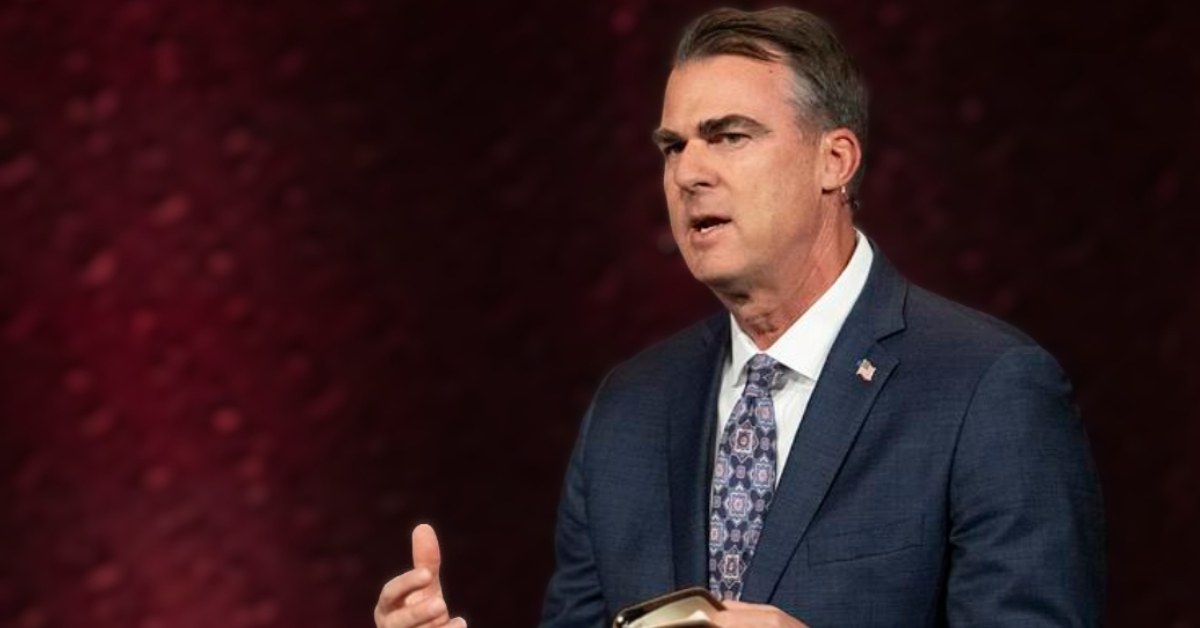On November 10, Republican Governor J. Kevin Stitt of Oklahoma sat down with Democratic Governor Matt Meyer of Delaware at the TEDNext conference in Atlanta, Georgia.
As the longest government shutdown in United States history entered its 41st day, and seemingly approached its end, the two politicians talked about paving a path forward for bipartisan cooperation.
“We need to find a way, as Americans, to sit on stage together, to break bread with each other, to understand that we can’t just channel all of our energies into knocking each other down,” Meyer said.
Stitt agreed.
“There’s people watching this, probably people in this room who hate me just because I’m a Republican,” he said. “There’s people watching this who hate Matt just because he’s a Democrat.”
He went on to add: “We can debate policy and we can still like each other, and we can have a difference of opinion on how to lead things. It’s so refreshing.”
Although the two diverged on a number of issues, including reproductive healthcare and immigration reform, but have a shared passion for public education.
“The thing is I know that he cares about Delaware citizens, I know he cares passionately about education, about giving people in Delaware a better life,” Stitt said. “Just like I do in Oklahoma.”
Notably, Stitt has been one of the few Republicans to criticize the Trump administration when it came to ordering the National Guard to mobilize in Chicago.
“Oklahomans would lose their mind if Pritzker in Illinois sent troops down to Oklahoma during the Biden administration,” Stitt told The New York Times in early October.
In the TED Talk, Governor Stitt also acknowledged the severity of the shutdown and the impact it had on critical federal programs like the Supplemental Nutrition Assistance Program, which has been disrupted for nearly 42 million Americans.
As the Trump administration has contested court orders regarding SNAP support, millions of recipients across the country have received partial payments — or none at all.

“I think it’s very topical right now with the government shutdown, and SNAP benefits are really affecting all of our states,” Stitt said. “I know governors, we’ve been on the phone, we’ve talked, ‘How are you doing?’ ‘How are we going to meet the needs of the most vulnerable in our state?’”
That’s when Stitt brought up “Be a Neighbor,” a platform he created on the Oklahoma Human Services website that connects Oklahomans in need to over 900 non-profits, faith-based groups, tribes, and community organizations.
“Because I don’t believe you can pass a law in Washington, D.C. or Oklhaoma City that can fix some of these social issues,” Stitt said. “It takes neighbors walking with neighbors. It takes churches and nonprofits.”
“And so, our Be a Neighbor concept is, if you have a need, you can go to this website we’ve set up, and it connects all of the nonprofits, the church communities, the state resources,” Stitt said. “That’s something I’m really proud of.”
Since 2019, Be a Neighbor has been a lifesaving resource for people like Joseph Randall, a senior in Oklahoma City who found himself struggling after his wife passed away.
“I just reached that point, and I needed help, but I didn't know where to go,” Randall told news outlet KOKH.
After returning to his neighborhood church for the first time in years, Randall learned about Be a Neighbor. And through that network, Randall met Ashley Goldsbury, the director of dignified income at The Good OKC.
“I was able to use Be a Neighbor to find out about helping get his car fixed, to be able to get food stamps, Medicaid, and then assisted living as well,” Goldsbury said.
In a matter of months, the widower went from facing homelessness to having reliable housing, transportation, and income again — all thanks to a variety of organizations in the Be a Neighbor network.
They even gave him a Christmas tree as he navigated the first holiday season without his wife.
“That was nice, they decorated that for me,” Randall said, “So it has opened doors. It's just you got to keep your eyes open.”
Goldsbury said that the Be a Neighbor network has been servicing Oklahomans in need for years.
“It’s really easy to navigate, you can just go on there, there’s a Find Now button, you can choose your county, and then you can choose the specific resources that you’re looking for,” Goldsbury said.
Mandi Mays, Be a Neighbor’s community recruitment coordinator, explained that the network is all about serving people with dignity.
“Reaching out for help is hard, so this gives them the opportunity to take that into their own hands and actually look for the things that they need,” Mays told KOKH.
You may also like: In less than 24 hours, this Chicago suburb launched a community-wide food drive to help neighbors losing SNAP
Header image via J. Kevin Stitt / Instagram



